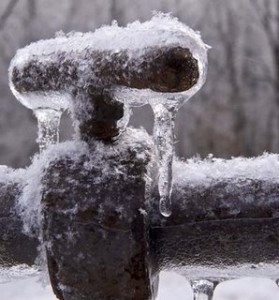Are Landlords Responsible When Tenants’ Heat is Shut Off?
 Landlords are generally responsible by law to provide sufficient heating for tenants—so what happens when the utility company is getting ready to shut off the heat in one of your units? Most leases cover who’s responsible for utilities; some pay their tenants’ landlords utilities, while others require tenants to set up their own accounts with utility providers.
Landlords are generally responsible by law to provide sufficient heating for tenants—so what happens when the utility company is getting ready to shut off the heat in one of your units? Most leases cover who’s responsible for utilities; some pay their tenants’ landlords utilities, while others require tenants to set up their own accounts with utility providers.
Most landlords are concerned for their tenants’ well-being, but of must also think of potential property damage that can be caused when a unit goes without heat in the middle of winter, like freezing and bursting pipes, and water damage.
Here are a few general answers to the question, “What can I do if my tenant’s heat is cut off?”
When in doubt about legal questions, check with your legal advisor. This blog is not intended to be a source of legal advice.
1. Landlords are not responsible for a tenant’s legal or financial obligations. If they are required by the lease to keep heat on in the unit, and they fail to pay the bill until the utility is forced to terminate service, they are responsible.
2. Your tenant is also responsible for subsequent damage to your property as a result of their negligence. While it may seem like adding insult to injury, it’s simply the consequence of the tenant breaking a legal agreement.
3. Prevention is the key. You do not want to find out about a tenant with utility issues from the downstairs tenant, who calls to report water dripping through the ceiling. Make arrangements with the utility company that any service shut-off notifications are sent to you.
4. Take another look at your lease agreement. Be sure that it states that heat is required in the unit to protect pipes, etc. from damage, and that failure to heat the unit is cause for eviction.
Don’t allow a simple lack of preparation to cause unnecessary damage to your rental property. Make sure you know what’s going on with your tenants and set up notifications with the utility companies that service your properties.

Add A Comment
You must be logged in to post a comment.